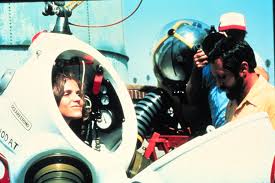Sylvia Earle [1935-0] American    
Rank: 101
Scientist, Explorer
Sylvia Alice Earle is an American marine biologist, explorer, author, and lecturer. She has been a National Geographic explorer-in-residence since 1998. Earle was the first female chief scientist of the U.S. Health, Future, Home, Attitude, Beauty, Chance, Environmental, Nature, Respect, Space |  |